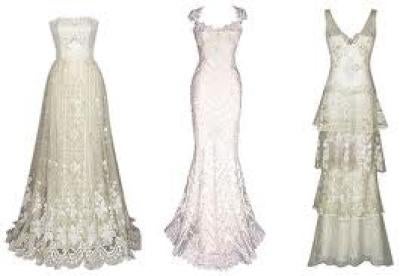Considering whether a family-operated bridal clothing business exercised sufficient quality control over services rendered under their trademarks to survive an abandonment challenge, the U.S. Court of Appeals for the Seventh Circuit held that the plaintiff did not, despite the fact that the plaintiff had no reason to doubt the standards employed by its licensee. Eva’s Bridal Ltd. v. Halanick Enter., Inc., Case No. 10-2863 (7th Cir., May 10, 2011) (Easterbrook, C.J.)
In 1996 Eva Sweis established a bridal clothing shop in Chicago named “Eva’s Bridal.” The successful business expanded as Eva allowed her children to open their own shops under the same name. Ultimately, the business passed to Eva’s relatives Said and Nancy Ghusein, who continued the practice of licensing the associated trademarks to relatives.
After opening an “Eva’s Bridal” shop in a Chicago suburb, the plaintiff sold the shop to relative Nayef Ghusein. The agreement between the parties required Mr. Guisein to pay Eva’s Bridal $75,000 per year for the right to use the name “Eva’s Bridal” and the associated trademarks. After the license agreement expired in 2002, Ghusein continued to use the name and marks without paying any royalty. In 2007, the plaintiff sued defendant Guisein for trademark infringement based upon his unauthorized use of the “Eva’s Bridal” marks.
The district court dismissed the suit on the ground that the plaintiff abandoned the “Eva’s Bridal” marks by engaging in naked licensing. A trademark may be found to have been abandoned if a mark owner allows others to use it without exercising reasonable control over the nature and quality of the goods or services rendered under the mark. Because the license agreement between the two parties did not contain any quality control requirements and did not give the plaintiff any authority over how the defendant’s business was conducted, the district court determined that it had been abandoned and the defendant could use it. The plaintiff appealed.
On appeal, the Seventh Circuit upheld the finding of abandonment. The plaintiff argued that there was never any doubt about the high standards of the defendant and his company, so there was no reason to interfere in the defendant’s operation of his business. The court rejected this position, explaining that no legal rule requires trademark owners to ensure “high quality” goods or that “high quality” permits unsupervised licensing. Rather, the court explained, “[t]he sort of supervision required for a trademark license is the sort that produces consistent quality.” Trademark owners must exercise quality control to ensure that consumers receive a “repeatable experience.” The court did not dispute that the defendant provided high-quality services, but instead held that the plaintiff had abandoned the company’s marks because the firm had retained no control whatsoever over the defendant’s use of the marks—neither via the license agreement nor through course of performance.



 i
i


